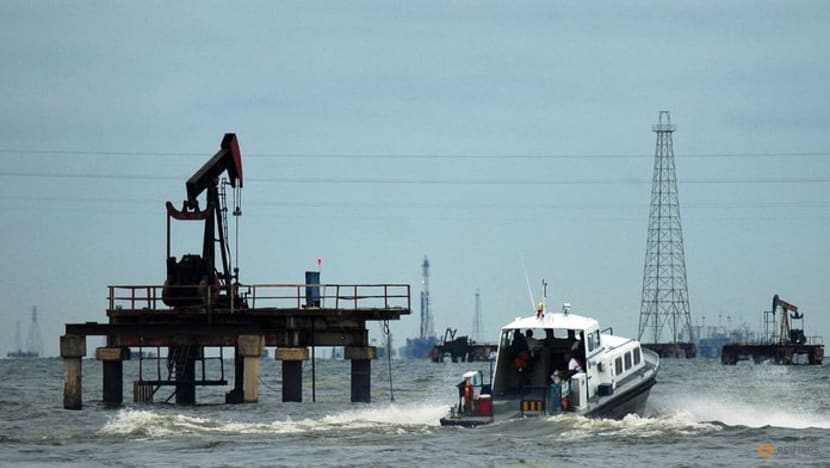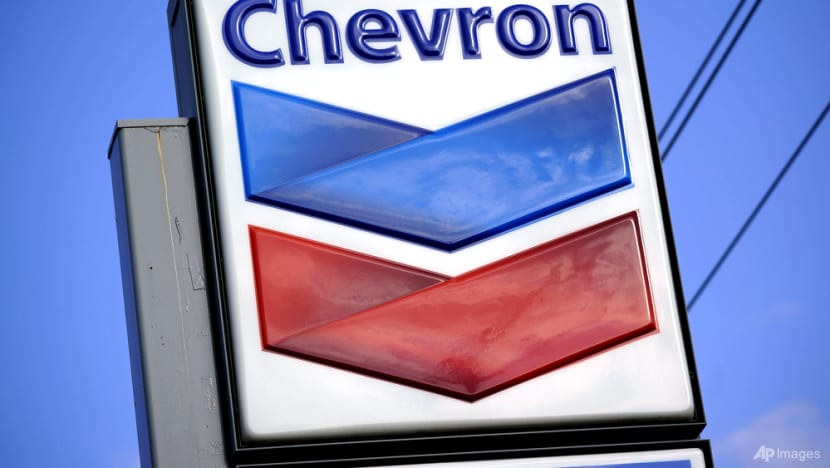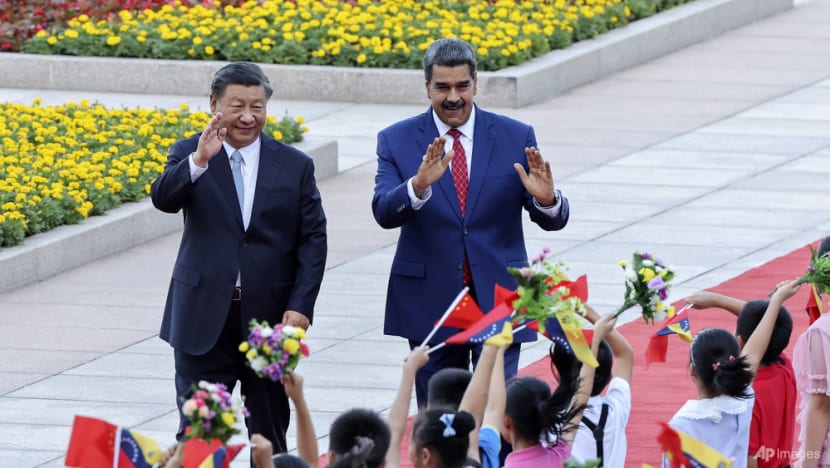Access to oil, geopolitical pressures: What is the US’ motive behind easing Venezuelan sanctions?
Washington last month U-turned on years of punishing measures on Venezuela’s oil and gas sector in return for free and fair presidential elections in the country next year.


This audio is generated by an AI tool.
WASHINGTON: Questions have been raised over the true intention behind the United States’ move to ease sanctions on Venezuela’s oil and gas sector.
The dramatic shift in ties has met accusations of diplomatic hypocrisy, after Washington last month U-turned on years of punishing measures against the country’s socialist government.
In return, Venezuelan President Nicolas Maduro is expected to let election monitors into the country to observe its presidential contest next year, while also allowing opposition candidates to run.
The US has been seeking other sources of fuel amid a global energy crunch, and Venezuela, with the world’s largest proven oil reserves, could be part of the answer.
However, the move may also be driven by geopolitics, as the US seeks to keep Venezuela’s distance from Iran, China and Russia, experts told CNA.
MUTUALLY BENEFICIAL
The new US-Venezuela relationship is, however, built on a shaky platform of mutual interests.
Much of Venezuela’s oil production had been frozen by sanctions after former US president Donald Trump imposed the restrictions in 2019.
Russia’s invasion of Ukraine last year, however, shifted the US’ political priorities.
The thaw began in November last year, when the US allowed American company Chevron to resume the production and export of Venezuelan oil.

This came in exchange for democratic concessions, with the Maduro government agreeing to restart talks with the opposition.
“It wasn't about democracy,” Dr Ryan Berg, director of the Americas Program at the Center for Strategic and International Studies, told CNA.
“In my opinion, it is about getting about 100,000 to 150,000 extra barrels of oil per day from Venezuelan production, and making sure that they come to the United States in a context that was characterised by a tight international oil market in the wake of Russia's invasion of Ukraine.”
GEOPOLITICAL FORCES AT PLAY
Other geopolitical forces could also have been at play behind Washington’s change of heart towards Venezuela, said analysts.
With the US facing geopolitical pressure to counter Russia and China, pulling closer to Caracas may actually be more about trying to push Venezuela away from its allies, said experts.
“Some things are missing here: the release of American hostages, committing to the defence of human rights, (and) committing to not continuing to violate human rights,” political analyst Oswaldo Ramirez Colina, director of ORC Consultants, told CNA.
The agreed deal on electoral guarantees had stopped short of Mr Maduro agreeing to reinstate opposition candidates who had been barred from public office. Three US citizens also remain wrongfully detained in Venezuela.
“I believe that the interest of the Biden administration with Venezuela is to keep it away from Iran mainly, secondly from Russia, (and) beyond that, China,” he added.
Russian Foreign Minister Sergei Lavrov hosted his Venezuelan counterpart Yvan Gil Pinto in Moscow on Thursday (Nov 16).
Meanwhile, China remains Venezuela's main creditor, and the two countries have been growing closer.

Mr Maduro met with his Chinese counterpart Xi Jinping in Beijing in September this year, and the duo promised to upgrade the relationship between their countries.
Washington’s shift in policy is not seen as doing much to break the burgeoning bond, said Dr Berg.
“I think China is so involved in Latin America and the Caribbean that to just address China's influence in Venezuela kind of misses the broader picture,” he said.
While China's influence in Venezuela is significant, it is not as concerning as its influence in other places that are more important to the US as allies, he explained.
These include Brazil, Argentina, Peru and Chile, he said.
Before this pivot, Washington had been backing the former Venezuelan opposition leader Juan Guaido.
He was invited as a guest of honour to the 2020 State of the Union address, to illustrate the US’ recognition that he was the country’s true president.
Republicans on Capitol Hill are now accusing President Joe Biden and the Democrats of forgetting the opposition Washington had backed for more than five years.
The White House had said that the arrangement simply aims to persuade an authoritarian regime to hold free and fair elections.
However, the quid pro quo nature of the new relationship — oil for the US, money for Venezuela — has not been lost on many in both Washington and Caracas.














